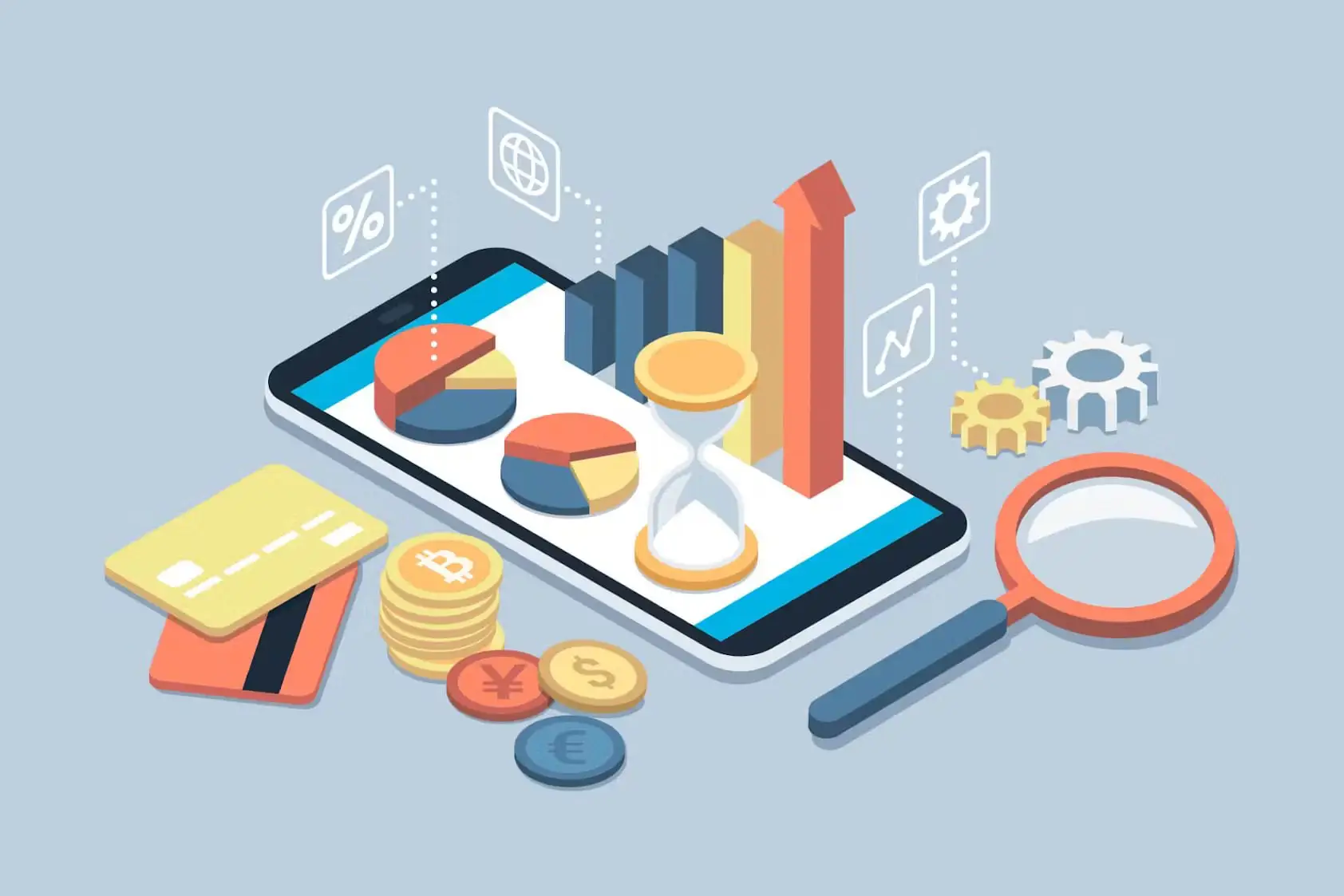Are you looking for free government grants?
Bootstrapping your business is the best method for starting a company. But there’s one aspect of bootstrapping that many entrepreneurs struggle with: funding.
You have to come up with all the money to give your business liftoff.
Thankfully, you don’t have to empty your life savings to fuel your startup. If you can’t quite fund everything yourself –– or if you’d just prefer to have some financial elbow room –– there are all kinds of programs that you can leverage.
That’s where free government grants can help.
In this article, we’ll break down:
- How much a free government grant can provide
- Who can obtain a free government grant
- The 6 step process for finding the right free government grant for your business
- And more
If you’re ready to learn everything you need to know about free government grants, and how it can make bootstrapping your business a whole lot easier, let’s get started!
What Is a Free Government Grant?
A grant is money given to a business or organization for a specific purpose. The money can fund innovative research, critical recovery initiatives, and other programs, as well as promote entrepreneurship among different sectors of businesses.
The benefit of receiving a grant is that this money does not have to be paid back and can be a big boost for individuals such as artists or students, nonprofit organizations, research institutions, or businesses.
“What’s the catch?”

That’s the best part.
There are no real downsides to small business grants, but there are some specific steps you should follow to ensure success in securing a free government grant.
You simply find grant programs you qualify for and apply. If all goes well, you’ll get free money for your business, no strings attached.
Grants might seem too good to be true, but they’re not.
Grants and loans are often treated like the same thing, but there’s a world of difference between the two. If you take out a loan, you’re responsible for paying that loan — with interest. With a grant, you have no obligations (other than using the money for your business).
There’s nothing to pay back, and you don’t owe anyone a cent of the money you use.
How Much Are Free Government Grants For?
Grants from the government can range from a few thousand dollars to tens or hundreds of thousands of dollars.
You are likely to see many in the $10K to $15K range.
Who Can Get a Free Government Grant?
Eligibility requirements for free government grants can be quite specific.
It’s important to make sure your business or organization is eligible for a particular grant before beginning the application process.
Federal grants are available for the following organizations:
- government
- education
- public housing
- nonprofit organizations
- for-profit organizations
There are often for new research or programs that support a variety of initiatives, including:
- social services for children and families
- grants for farmers
- urban development
- libraries
- museums
- the support of veterans
Some grants for small businesses are available through the Small Business Administration (SBA). These are for businesses that conduct scientific research and development. There are also grants from the SBA for non-profits and organizations that provide training and counseling programs to support entrepreneurship.
At the local and state levels, small business grants may be tailored for certain sectors such as:
- veteran-owned businesses
- minority-owned businesses
- Businesses targeting specific causes
- those in particular locations
You’ll need to make sure your business meets all the requirements specified by the free government grant.
The Advantages and Disadvantages of Free Government Grants
Pros of Government Grants
Free Money
The main attraction of free government grants is that they do not need to be repaid. They are free money for your business.
Many Available Grants
There are thousands of grants available for all industries. From education, nonprofits, and healthcare to businesses in all sectors, you’re likely to find a free government grant that works for you.
Easy to Read Information Online
There is quite a bit of information easily found online about the types of free government grants available to you.
Different websites will spell out the requirements so you can determine your eligibility.
There are also many free resources available to help you through the grant process.
No Limit on Application
There is no limit on the number of grants you can apply for.
Cons of Free Government Grants
Specific Eligibility
Government grants have very specific criteria for which organizations are eligible.
At the federal level, eligibility may be more restrictive than at state and local levels which may have fewer criteria — although there will always be some criteria to meet.
Proposal Writing
Writing a grant proposal can be a long and difficult process to navigate.
You’ll need to do a lot of research and be very detailed in describing how you will use the money.
The process can take weeks — or months — to complete all the paperwork.

Long Wait
Once you’ve submitted a grant proposal, there is often a long wait to hear if you’ve been accepted or not to receive the grant.
If your business is needing funding more quickly, a free government grant may not be the best option.
But if you can wait, it is far better than a loan that needs to be repaid.
Competition
There are many businesses that look for grants to help with funding, so competition for grants can be high.
The more specifically you can tailor your grant proposal, the better chance you have at standing out from the crowd.
Detailed Reporting
Grants may not need to be repaid, but it doesn’t mean you’re in the clear once you’ve been awarded one.
You’ll need to:
- follow all the rules and terms of the grant
- keep track of your spending
- report your progress in detail
The 6-Step Process to Finding the Right Free Government Grant Program for Your Business
Step 1: Write a Business Plan
Before you begin the grant process, it’s important to understand your business. If you have not already done so, now is the time to put together a business plan.
A business plan will most likely be a required document when you complete the grant application.
It will also help you to clearly explain:
- the purpose of your business
- your target market
- your competition
- how your business stands out from the others
Step 2: Know Where to Look
Finding the right grant is half the battle.
Grants are purposely difficult to find (they’re not just throwing the money away, after all), so you’ll need to do your due diligence if you want to find amazing grants.
Here are some of the best options for seeking out grants:
Grants.gov
This is perhaps the best database for grants –– although it can be a little difficult to navigate at times.
You can search a global grant database and find extensive information on each grant.
The site lists over 550 small business grants.
Note that these grants are typically for businesses grounded in:
Fundera’s list of small business grants Fundera’s list of small business grants
Fundera is known for business loans––which, again, aren’t nearly as helpful as grants––but this particular blog post covers grants.
This lengthy list sorts 105 grants into seven categories and covers a lot of ground. It’s also updated regularly, so there’s no need to worry about outdated or broken links.
This popular grant program targets small businesses that are technologically focused.
In their own words, the SBIR “encourages domestic small businesses to engage in Federal Research/Research and Development (R/R&D) that has the potential for commercialization.”
A related initiative is the Small Business Technology Transfer, which also deals with R&D funding.
It can also pay to seek out local or state-level grants.
Many grants are provided by either the federal government or corporations, but these can be highly competitive.
If you can find good grant programs targeted at businesses in your state, county, or city, you might strike gold.
Step 3: Research What Grants You Qualify For
Next, find what grants you are eligible for.
Many grants are niche by nature and target particular types of small businesses.
In order to qualify, you need to meet specific eligibility requirements.
While this can get extreme (see the Minnesota Dairy Business Planning Grant), most startups are able to qualify for a variety of grants.
You may need to do some digging to find them, but the payoff is well worth it — and far better than a loan.
Step 4: Understand What is Needed in the Application
Read the requirements carefully and gather the documents you will need.
Some common documents requested include:
Step 5: Craft a Perfect Proposal
Writing the grant proposal is one of the most difficult parts of the process.
Be sure to understand the purpose of the grant and tailor your application toward it.
Show how your business is the best one to meet the objectives of the grant.
Most importantly, explain how the grant will benefit your business and make a difference.
Step 6: Keep an Eye on the Deadline
Stay organized and set reasonable expectations about meeting the application deadline.
Planning ahead will keep you from rushing at the end as the deadline looms.
After the application is in, be prepared to wait.
You may not hear back for weeks or even months.
You Won a Grant! Now What?
When you’re awarded a grant, you’ll often need to spend the money on certain business expenses.
For example, you may need to spend it on R&D instead of Facebook marketing.
Make sure you research a grant thoroughly before applying so you know exactly how you’ll need to use the money you’re given.
Free Government Grants vs Government Contract Opportunities
Nailing a free government grant isn’t the only way to get government funding for your business.
You might find it surprising that the U.S. government often buys from small businesses, and it’s possible to secure government contracts that allow you to sell to different departments.
The Small Business Administration (SBA) provides a wealth of information on gaining contract opportunities.
First, you need to make sure you meet all the eligibility requirements set forth by the government.
It also helps to read up on the different types of contracts out there.
Set Aside Contracts
Set-aside contracts allocate government money for lone small businesses.
Joint Venture Contracts
These are designed for two or more small businesses working together.
When you’re ready to seek out contracts, you have a few options. FedBizOpps.com lists tens of thousands of contract opportunities with the federal government, and it’s one of the best sources for finding contracts.
Once you find a contract, you’ll have to make a bid on it (so any marketing know-how will come in handy here).
You should also register your business with the System for Award Management (SAM).
Registering will input your business into databases that the government uses to find small businesses to work with.
Registration is completely free, and it’s best to include as much detailed information as possible.
The more appealing your SAM profile is, the more likely you’ll be able to successfully land a contract.
Apply for an SBA Loan & Lighten the Load of Debt
Learning how to get free money from a free government grant sounds great, but it’s even more appealing if you’re in debt.
It’s easy to get into debt when bootstrapping a business, but with the help of government assistance, you can mitigate the effects of debt and get back on your feet.
One option is applying for a loan through the SBA. While the SBA itself doesn’t lend to businesses, it facilitates the process of getting a loan.
Many SBA-guaranteed loans offer benefits such as:
- competitive rates
- extended term lengths
- lower down payments
- ongoing counseling
For small businesses, going through the SBA can be far more helpful (and much safer) than going through a bank or private lender.
You can use the Lender Match feature on the SBA’s site to apply for loans. The process is fairly straightforward, and the SBA helps you every step of the way.
However, this approach isn’t all sunshine and rainbows.
Finding a lender and getting approved can take some time, and some have rather strict requirements. For some loans, you may even need collateral. This can put your personal assets at risk.
That’s why applying for an SBA loan is something you need to think about carefully. They’re great for the right business, but you need to know what you’re getting into.
Get Free Government Money for Your Business
Knowing how to fund your business with government money can be extremely beneficial for startups of all shapes and sizes.
You’re not going to fund your startup from scratch, but you can use government assistance to supplement your existing capital. What’s more––through grants, contracts, and loans, you can reduce your financial burdens while you grow your business.
If you haven’t considered these methods of getting free money to make money, you owe it to yourself to take a look.
The Bottom Line: Free Government Grants
When bootstrapping your business, free government grants will help you secure the funding you need.
Although it may seem like a lot of effort to find and secure a grant from the government, the payoff can be worth it.
Local, state, and federal grants can provide a much-needed boost to your business or startup to fund new ideas, research new technology or products, or cover costs.
While a free government grant may not cover all your expenses, it will go a long way to ensuring your new venture is a success.










